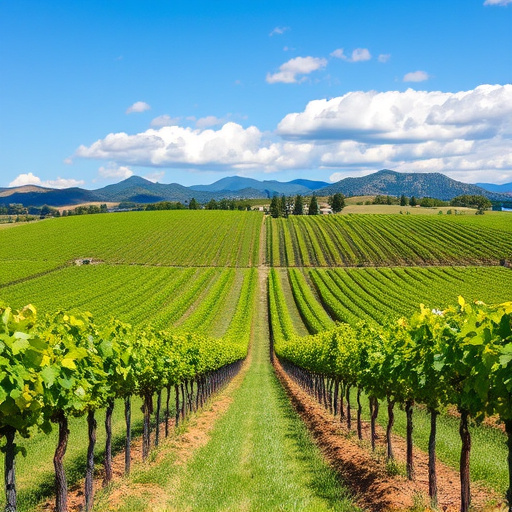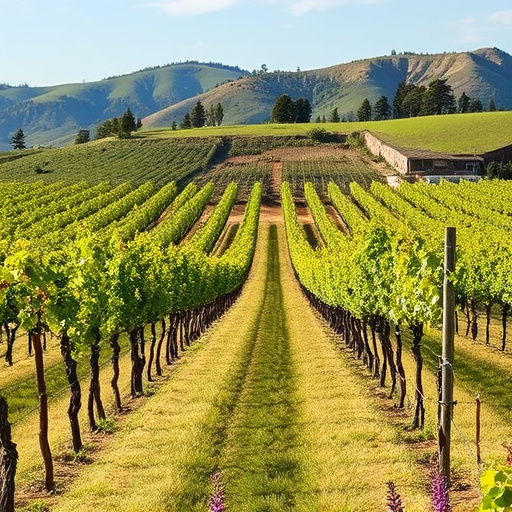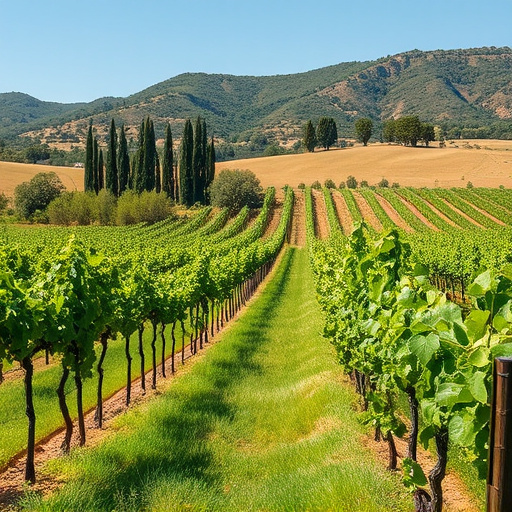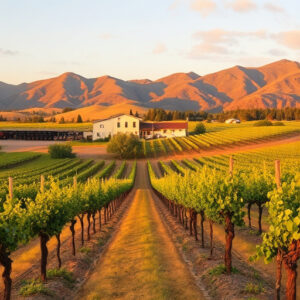High-altitude winemaking in Sonoita, Arizona, presents unique challenges like cooler temperatures and reduced sunlight, resulting in elegant, complex wines with distinctive characters. This region's diverse soil types, microclimates, and protective geographical features support a wide array of grape varieties not typically found in warmer climates, earning it a premier wine-producing destination reputation. The slow ripening process and favorable conditions concentrate flavors, leading to vibrant acidity, complex aromas, and robust red fruit, floral, and earthy notes in wines from the area's vineyards.
“Uncover the enchanting world of high elevation winemaking in Sonoita, Arizona, where the Sonoran Desert meets remarkable viticultural success. This article delves into the unique challenges and beauty that define wine production here, exploring how altitude transforms grape characteristics and flavors. Discover the rich history and thriving vineyards of Sonoita, known for their distinctive terroir and soil composition. Learn about traditional winemaking techniques and visit notable vineyards offering unforgettable experiences amidst the desert scenery.”
- The Unique Challenge and Beauty of High Elevation Winemaking
- – Exploring the environmental factors that shape Sonoita's wine production
- – How altitude influences grape growth and flavor profiles
The Unique Challenge and Beauty of High Elevation Winemaking

High elevation winemaking in Sonoita, Arizona presents a unique challenge and beauty that sets it apart from its lower-altitude counterparts. With vineyards nestled at elevations exceeding 4,000 feet, winemakers here must navigate distinct climatic conditions, including cooler temperatures and reduced sunlight, which can slow down the grape ripening process. This, however, also results in slower sugar accumulation and higher acidity levels, contributing to the production of elegant, complex wines with a distinctive character.
The beauty lies in how these challenges foster a sense of place and uniqueness. The cool nights and warm days create a diurnal temperature shift that allows for gradual, even ripening, leading to grapes with balanced sugars and acids. This, combined with the region’s diverse soil types and varied microclimates, results in a wide array of grape varieties thriving, offering both winemakers and wine enthusiasts a chance to explore the distinct flavors and aromas that only high elevation winemaking can produce, enhancing Sonoita’s reputation as a premier wine-producing destination among the vineyards in Arizona.
– Exploring the environmental factors that shape Sonoita's wine production

Sonoita, Arizona, is a charming, high-elevation town nestled among stunning landscapes that play a pivotal role in shaping its renowned wine production. The region’s unique environmental factors contribute to the distinct characteristics of wines crafted here. One of the key advantages is the cool climate, with mild summers and crisp winters, allowing for a slow ripening process that concentrates flavors in the grapes. This temperate weather is ideal for growing various grape varieties, including those not typically found in warmer climates.
The area’s geography also adds to its viticultural allure. Surrounded by mountains, Sonoita benefits from natural protection against harsh winds, creating a microclimate that fosters diverse grape cultivation. The region’s volcanic soils further enhance the wine’s quality, providing excellent drainage and contributing to the distinct mineral notes often present in local wines. These environmental elements combine to create an ideal environment for vineyards in Sonoita, resulting in exquisite, unique, and highly sought-after vintages.
– How altitude influences grape growth and flavor profiles

The unique elevation of Sonoita, Arizona, at around 4,000 feet above sea level, plays a pivotal role in shaping the characteristics of wines produced in the region’s vineyards. This high altitude has distinct effects on grape growth and development, contributing to the distinctive flavor profiles that have made Sonoita a renowned wine destination.
As grapes ripen at higher elevations, they often experience slower growth rates due to cooler temperatures. This slow maturation allows for a more concentrated accumulation of sugars and flavors within the berries. The reduced sunlight exposure also influences the grape’s skin thickness, affecting the extraction of color, tannins, and various aromatic compounds during the winemaking process. These factors collectively result in wines with vibrant acidity, complex aromas, and robust flavors, often showcasing notes of bright red fruits, floral hints, and earthy nuances, all attributes that set Sonoita wines apart from those produced at lower elevations.
High elevation winemaking in Sonoita, Arizona offers a unique blend of challenges and beauty. The region’s alpine environment, with its cool temperatures and distinct sunlight, significantly impacts grape growth and flavor development, creating distinctive wine profiles that captivate palates. Exploring the vineyards in Sonoita reveals not just a vibrant local industry but also a harmonious relationship between nature and viticulture. This small town’s commitment to preserving its natural landscape while fostering high-quality wine production makes it a notable destination for both winemakers and enthusiasts alike.
